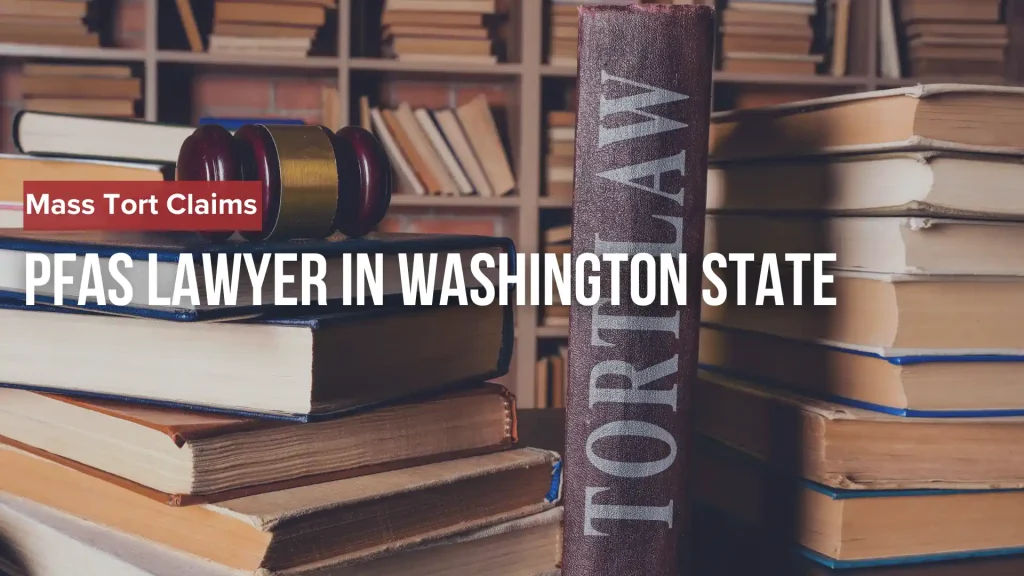
If you live in Washington state, you may have heard the term “forever chemicals” before. But do you know that they are dangerous?
Polyfluoroalkyl substances (PFAS), otherwise known as forever chemicals, are synthetic substances used in various industrial and consumer products that resist grease, water, and oil. For instance, you will likely find PFAS in your nonstick cookware, water-repellent clothing, stain-resistant fabrics, and even your cosmetics. Additionally, some firefighting foams use PFAS to heighten their effectiveness against grease- and oil-based fires.
Unfortunately, though PFAS have been used in many modern conveniences, the Environmental Protection Agency has linked prolonged PFAS exposure to several health issues, including cancer. If you believe that you have contracted health issues related to PFAS, here is what you need to know.
What Are PFAS and Why Are They Dangerous?
PFAS earned the nickname “forever chemicals” because they resist breaking down in the environment or in the human body. Unfortunately, this chemical persistence has contaminated water supplies near heavy-use locations, including industrial sites, military bases, and airports.
Research has shown that, unlike many ingested substances, PFAS can accumulate in the body over time and lead to serious health complications, including kidney and testicular cancer, liver damage, thyroid disease, decreased fertility, and developmental effects in children.
The Growing Concern About Water Contamination
PFAS can enter the human body in many ways, but most victims build up PFAS levels in their body through their drinking water from both municipal water systems and private wells. This contamination most often occurs near facilities that use PFAS-containing products, such as firefighting foam.
Many large corporations have dealt with lawsuits and litigation due to their contribution to PFAS contamination.
The Role of Firefighting Foam in PFAS Exposure
Firefighters often aqueous film forming foam (AFFF) to extinguish high-intensity fires and flames involving gasoline or other flammable liquids. Unfortunately, the very properties that contribute to AFFF’s firefighting properties also make it a significant environmental hazard. Not only do firefighters and military personnel put themselves at risk the more they use AFFF-containing equipment, the contaminants from AFFF can seep into the ground and affect nearby water supplies.
The Impact of PFAS on Washington State Communities
PFAS contamination impacted communities across Washington State, from rural areas to urban centers, often without residents’ knowledge. In addition to the imminent health risks, victims of PFAS contamination face potential declines in property values and increased healthcare costs and premiums, as more and more institutions find out about the risk. In addition, the effort to recover any medical costs related to PFAS can mean lengthy and costly legal battles.
Local ecosystems also suffer: elevated and prolonged levels of PFAS can disrupt the food chains and ecological balances of wildlife, and especially that of aquatic species.
Legal Recourse Through Class Action and Mass Tort Litigation
The widespread impact of PFAS contamination has prompted many victims nationwide to pursue class action and mass tort litigation, both of which allow large groups of people to pursue compensation from companies responsible for PFAS contamination.
Class action lawsuits are filed on behalf of a group of people who all have complaints related to PFAS: individually, their cases may not warrant a lawsuit, but collectively, their case represents a significant harm. For example, in 2023, 3M agreed to pay $10.3 billion in a class action settlement to more than 11,000 water systems for contamination and degradation of their systems.
Under mass tort litigation, the claimants file individual lawsuits, hold separate trials, and sue for individual damages. However, they choose to group together for the sake of efficiency and strength in numbers. Attorneys often opt for mass tort litigation when the extent of toxic chemical exposure can vary from person to person. Many experts and advocates in the field expect tort litigation related to PFAS contamination to continue to rise through 2024.
Steps You Can Take If You Suspect PFAS Exposure
If you suspect that you might be at risk for PFAS-related health issues, consider taking the following steps:
- Get Tested: If you live near a known contamination site or use products that contain PFAS, consider testing for PFAS levels in your blood.
- Speak With Your Doctor: If your test results indicate elevated PFAS levels, have your medical provider monitor your health and prescribe treatment.
- Document Your Exposure: As far as possible, document every possible instance of PFAS exposure, including dates, locations, and products.
- Contact a PFAS Lawyer: If you want to file a claim to cover your PFAS-related medical expenses, contact an experienced PFAS lawyer in Washington State. They can explain your legal options.
Why You Need a PFAS Lawyer in Washington State

A seasoned personal injury attorney can collect all the evidence that you need for your claim, negotiate with insurance companies on your behalf, and advocate for you in court if necessary. They can also shoulder your legal burden so you can focus on healing.
Sometimes, the health complications related to PFAS exposure can claim the life of your loved ones. In these instances, our wrongful death lawyers at Tamaki Law can advocate aggressively to help compensate you for your loss. Losing a loved one should never happen, especially not at the hands of a chemical contamination that could have been avoided.
Protecting Your Rights with the PFAS Attorneys at Tamaki Law
As “forever chemicals” continue to affect public health and safety, you can seek legal recourse if you have been affected. Our dedicated PFAS attorneys at Tamaki Law understand what you are going through and are ready to serve you.
Call us at (800) 801-9564 or fill out our online contact form for a consultation. Our offices are in Kennewick, Yakima, and Bellevue. We have helped clients in those areas receive the compensation they deserve for their PFAS-related health issues. We look forward to hearing from you.
